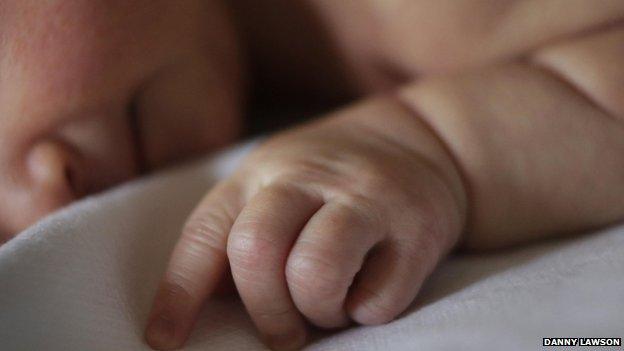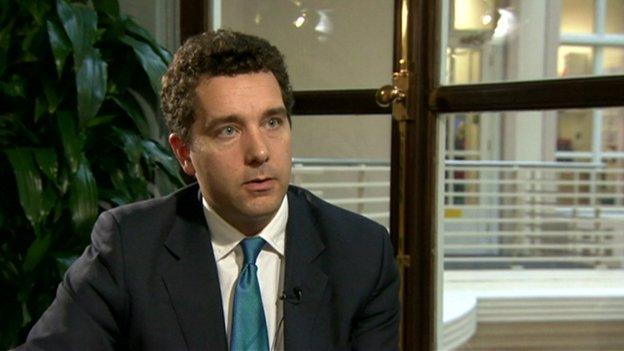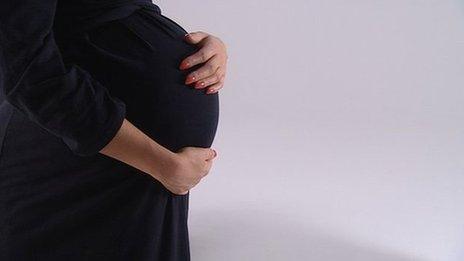Family Drug and Alcohol Courts to be extended in England
- Published

Courts which help parents deal with drug or alcohol addiction so they can keep their children are to be opened in more areas of England.
London has had a Family Drug and Alcohol Court for seven years, and courts have opened more recently in Gloucestershire and Milton Keynes.
More will now open in areas including East Sussex, Kent and Medway, Plymouth, Torbay and Exeter, and West Yorkshire.
Funding for the expansion comes from the Department for Education.
Most families that come into care proceedings have at least one parent with a drink or drug problem.
Unlike the traditional family court, the FDAC has its own team of experts and doctors - it is often described as a "therapeutic" process.
Parents come up before the court every fortnight, seeing the same judge every time.
Usually their children are placed temporarily with other family members or in foster care, while the parents concentrate on their detox, therapy and treatments - an intensive programme usually taking 26 weeks.
They undergo regular testing to make sure they are not secretly drinking or taking drugs.
An evaluation last year of the London FDAC by Brunel University, funded by the Nuffield Foundation, found 35% of mothers managed to kick their addictions, so their children could be returned safely to them, compared with 19% of mothers who go through ordinary family courts.
However, the sample group was relatively small: just over 200 families in all.
The London FDAC only sits once a week, and deals with a relatively small number of cases, about 30 a year at the moment.

Mother's story
'My priority wasn't to sit and play with toys .. it was using [drugs]"
"Claire" was a mother of three who had been addicted to heroin for more than 10 years when she went into FDAC.
She found the court "intimidating - far more serious than the other family courts".
Her children were taken away - placed with her own mother.
She was put on an intensive detoxification and therapy programme. For six months, she did this from 10:00-16:00 every day. Every fortnight she reported to the judge.
"It is really hard - really draining," she said.
Regular tests meant she could not lie about her drug use and the intensive therapy helped her understand why she had become addicted.
When it finished, she was clean, and got her children back.
That was five years ago. She's still clean - she's since had a new baby.
"My fourth child is like my second chance," she said.
This baby has hit all her developmental targets. The others were slow, Claire admitted, because she never spoke to them or played with them: she was focussed on drugs.

Sir James Munby, president of the Family Division of the High Court, said: "I consider FDAC as one of the most important and innovative developments in public family law in decades.
"I am a strong supporter and believe that its combination of therapy, offered by the multi-disciplinary team, and adjudication and direction using the authority of the court is the right approach for parents suffering from addiction."
He added: "The process delivers better outcomes for the children and the parents subject to it and achieves this in a manner which respects the humanity of the parents."
'Invaluable lifeline'
This FDAC extension is being funded by a £2.5m grant from the Department for Education.
Children and Family Minister Edward Timpson MP said: "Since 2008, the FDAC has thrown an invaluable lifeline to hundreds upon hundreds of families."
He said extending its work would deliver "life-changing results for families across the country".

Edward Timpson MP said FDAC had proved its worth over the last seven years
The court's founder, District Judge Nicholas Crichton, told Radio 4's Today programme: "In the FDAC, we have seen some parents demonstrate a remarkable capacity to change in response to our more constructive, empathetic approach.
"These people have got their lives in a terrible mess, but they love their children... many of them dearly want to provide good enough care for their children."
"Importantly, FDAC has the support of parents themselves, which is crucial to its success."
The extension should mean about a quarter of English family courts have an FDAC.
But, as in London, these courts will sit once a week and hear a relatively small number of cases.
'Minuscule' numbers
Hundreds of families may now go through FDAC every year - but according to the court service Cafcass, more than 18,000 children were involved in care proceedings in England in 2013-14.
FDAC director Sophie Kershaw said: "We don't want to go too fast. Each region will have different needs, and we want to evaluate their work as we go forward."
Cathy Ashley, chief executive of Family Rights Group, a charity which supports families whose children are the subject of local authority involvement, said she was a "big fan" of FDAC.
"My only concern is the numbers who will benefit from this roll out will be minuscule compared to the thousands of families going through care proceedings," she said.
"I'm also concerned that government funding is only for one year, and progress might not be sustained."
- Published23 June 2014

- Published23 June 2014

- Published22 April 2014

- Published9 August 2012
